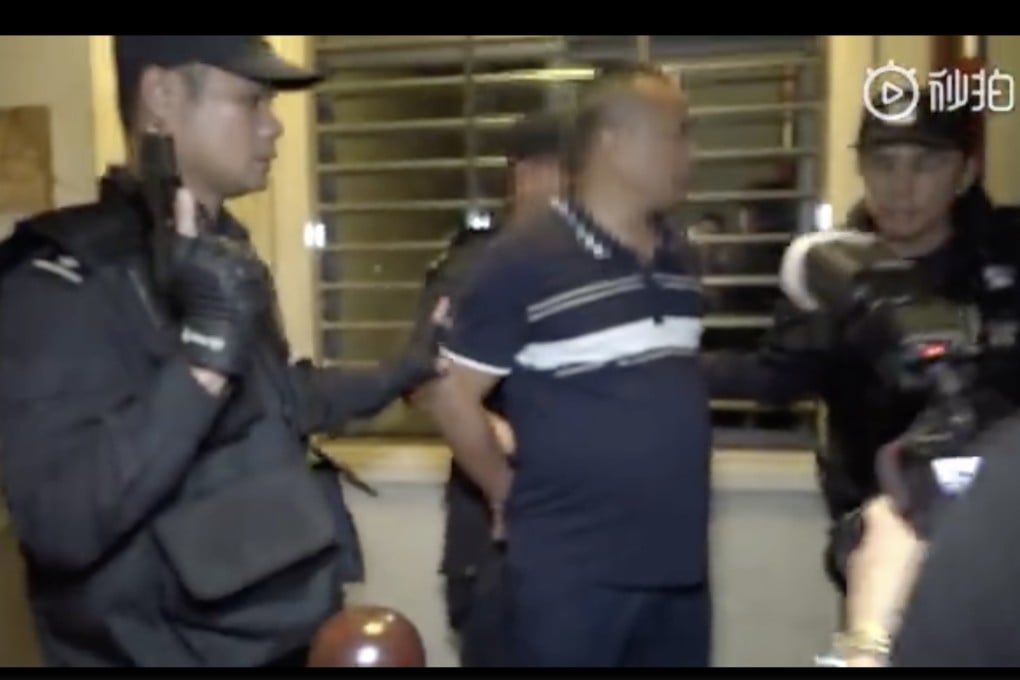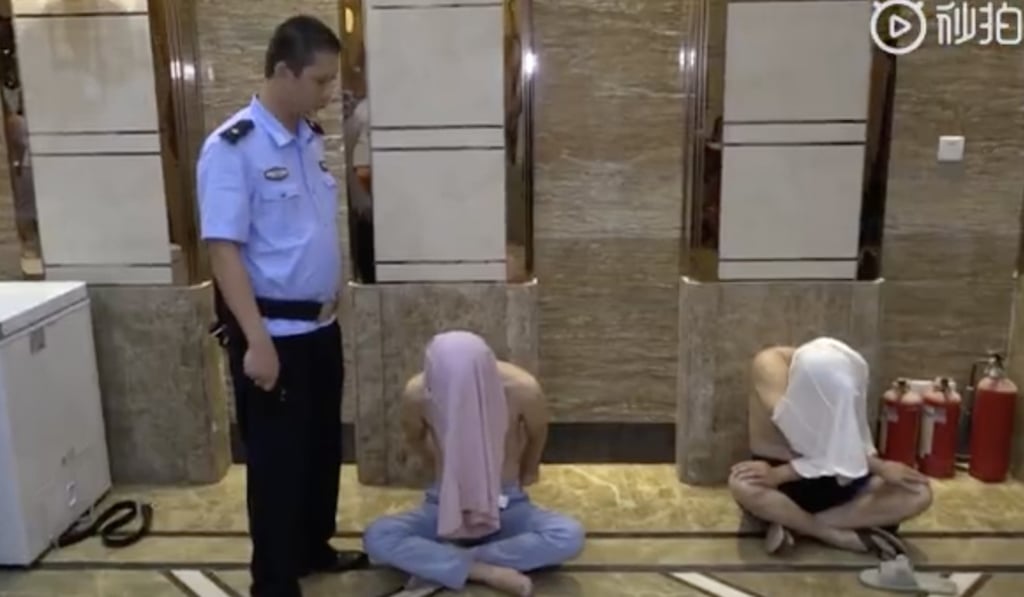China’s war on organised crime, corrupt officials sees 79,000 people detained
- Nationwide effort seeks to round up gang bosses and the ‘protective umbrellas’ who allow them to act with impunity
- Leaders see campaign’s success as evidence of Communist Party’s legitimacy to govern, expert says

When gang leader Chen Xinfu was apprehended in Haikou, capital of south China’s island province of Hainan, earlier this month he told his arresting officers: “Guys, take good care of me, for old times’ sake.”
Unlike the hundreds of other mob bosses who have been rounded up in recent months, Chen has a special relationship with the police: before his descent into the criminal underworld, he was deputy head of the public security bureau in the city’s Xiuying district.
After leaving the force, Chen took up the reins of a local gang in 2006, which according to a statement issued on Wednesday by Haikou police, “terrorised local villagers” and “engaged in illegal mining and drug trafficking” in two villages for more than a decade.
The latest sweep of China’s criminal fraternity is part of an ongoing crackdown on organised crime launched last year. It mainly focuses on criminal activities such as extortion, underground banking and drugs, all of which are common problems in grass-roots society. The nationwide, three-year campaign is designed to snare not just mob bosses but also the corrupt officials, known as “protective umbrellas”, who shield them from the law.

As of March, more than 79,000 suspects had been detained as part of the campaign, Xinhua reported.